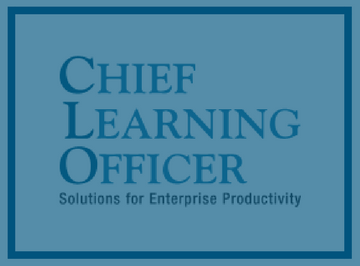Diversity is Learning’s Business
Diversity is Learning’s Business
Learning about one another can be uncomfortable but it’s worth the effort.
Working and socializing with people who have different points of view, come from different cultures and profess different beliefs is a good thing.
One surefire way to eliminate prejudice and xenophobia is to make friends with people who don’t look like you. That’s why it’s a colossal mistake to pursue any course of action where we construct a less diverse experience in colleges, companies or our country.
There are two initiatives being pursued right now that threaten that diversity and will affect higher education and corporate America. Efforts to wind down the Deferred Action for Childhood Arrivals program will cut back amnesty to some undocumented immigrants who came to the U.S. as children. The other is chipping away at Title IX, the civil rights law preventing sex and gender discrimination in education.
I’m not making a political statement on how to handle illegal immigration. And I’m not arguing the benefits of Title IX for, say, women and girls in sports. The case I make is that diversity is a catalyst for solving problems. It’s an abundant pool from which we can fish for ideas. The inclusion of people from varied walks of life, other countries, different religions and creeds creates a healthier college, workplace and democracy. I’ll add diversity of opinion to that list too; even opinions that most of us don’t agree with.
Whether at school or work, a solution is better when we create a classroom or workplace where a range of opinions can study the problem. I’m not arguing a crowd will have a better answer than an individual, as posited by author James Surowiecki in his book, “The Wisdom of Crowds.” Rather, I’m suggesting individuals are generally smarter and more creative than crowds and it’s beneficial to have individuals from many different backgrounds and experiences to solicit answers.
Diversity can also be a powerful enemy to relativism or the belief that truths depend on the people and groups holding them. As Plato argued and I believe, there are absolute truths. And one of those truths is that it’s wrong to exclude — or silence — people simply because of where they hail from, the language they speak and beliefs they hold, even intolerant ones.
Consider this: Most companies sell their products or services to a diverse customer base. By having a diverse workforce, an employer has a greater capability to connect with customers the world over.
Employers, especially the CLOs charged with finding talent, must invest time with colleges and universities that invest in a global education. CLOs should seek out those schools that reject cultural relativism and instead seek to inculcate truths that cut across our human differences and instill a sense of ethics and right and wrong in the workers of tomorrow.
That type of education prepares students to relate to and serve their future co-worker, employer, supplier and customer. Universities that teach students to embrace diversity and seek absolute truth will find companies eager to hire their graduates as an antidote to the financial and ethical scandals that plague corporate America.
For higher education, diversity is about inclusion and ensuring academic institutions are places of learning for a wide variety of people, especially those who have been underrepresented or have religious and ethical beliefs at odds with society. Learning about one another and learning how to disagree can be an uncomfortable stretch. But it’s not without its rewards.
We don’t know where the next big idea will come from. People from around the world are attracted to the United States. Why would we want to restrict the flow of diversity to our nation? But we do. On a plane, I recently sat next to a man originally from New Zealand who holds a doctorate in microbiology. He’s lived in the United States for 20 years and his application for U.S. citizenship is in limbo. As part of his work here, he was on his way to make a presentation to an agency of the federal government about the importance of using science to make decisions.
For CLOs the question is: How can you create a diverse environment that leverages the strength of your workforce to make decisions?

This column was originally published in CLO.